Rock sugar pear soup, a beloved traditional Chinese remedy, has been cherished for centuries for its delicate sweetness and therapeutic properties. Often hailed as a natural elixir for soothing sore throats, moistening the lungs, and calming coughs, this humble beverage combines the crisp juiciness of pears with the subtle caramel notes of rock sugar. Yet, for many home cooks, the question lingers: How long should you boil rock sugar pear soup to achieve the perfect balance of flavor and efficacy? This article delves into the nuances of timing, techniques, and tips to help you master this timeless recipe.
The Science Behind the Simmer: Why Time Matters
Boiling is not merely a culinary step—it’s a chemical process that transforms raw ingredients into a cohesive, flavorful broth. When pears are simmered in water, their cellular structure breaks down, releasing natural sugars, vitamins, and dietary fiber. Rock sugar, or bing tang, a crystalline sweetener made from sugarcane or beets, dissolves slowly, infusing the liquid with a mellow sweetness that complements the pear’s subtle tartness.
The duration of boiling directly impacts the texture, taste, and nutritional value of the soup. Undercooking may leave the pears too firm and the broth thin, while overcooking can result in a mushy texture and a loss of volatile compounds responsible for the drink’s aroma. Striking the right balance requires patience and precision.
Standard Boiling Time: The 30-45 Minute Rule
Most traditional recipes recommend simmering rock sugar pear soup for 30 to 45 minutes on low to medium heat. This window allows the pears to soften without disintegrating completely. Here’s a breakdown of what happens during this period:
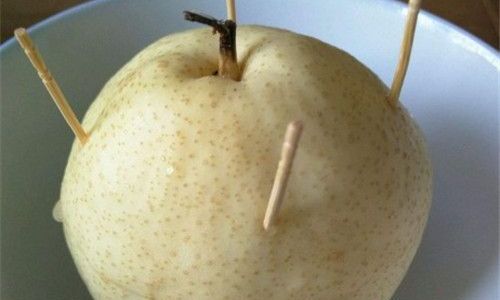
- First 15 Minutes: The water reaches a gentle boil. Pears begin to release juices, and the rock sugar starts melting.
- 15-30 Minutes: The pears soften further, and the broth thickens slightly as natural pectins from the fruit are released.
- 30-45 Minutes: The flavors meld harmoniously. The pears become tender but retain their shape, and the broth achieves a silky consistency.
However, this timeline is not one-size-fits-all. Factors like the type of pear, stove intensity, and desired texture can influence cooking time.
Adjusting for Pear Variety: Firm vs. Soft Pears
Not all pears are created equal. The variety you choose can significantly affect cooking time:
- Asian Pears (Nashi): Known for their crisp texture and high water content, Asian pears require 35-45 minutes to soften adequately. Their firm flesh holds up well during simmering, making them ideal for soup.
- European Pears (Bartlett, Bosc): Softer and sweeter, these pears may need only 25-35 minutes. Overcooking can turn them to mush, so monitor closely.
- Underripe Pears: If your pears are slightly unripe, add 5-10 minutes to the cooking time to ensure they soften properly.
The Slow Cooker Alternative: Low and Steady Wins the Race
For those who prefer a hands-off approach, a slow cooker offers a convenient alternative. Set it to low heat and let the soup simmer for 2-3 hours. This method yields a richer, more concentrated broth, as the prolonged cooking time extracts deeper flavors from the pears and rock sugar. However, avoid overcooking, as pears may become overly soft.
Pressure Cooker Hack: Speed Without Sacrificing Flavor
Modern pressure cookers can reduce cooking time to just 8-12 minutes under high pressure. This rapid method is perfect for busy households but requires careful monitoring to prevent the pears from turning to puree. Release the pressure naturally for 10 minutes before opening the lid to preserve texture.
Signs Your Soup Is Ready: The Visual and Tactile Cues
Determining doneness goes beyond the clock. Use these indicators to gauge readiness:
- Pear Texture: Pierce a pear slice with a fork. It should glide in easily but still hold its shape.
- Broth Consistency: The liquid should be slightly thickened, with a glossy sheen from dissolved pectins.
- Aroma: The kitchen should fill with a sweet, floral scent—a sign that the ingredients have fully melded.
Beyond the Basics: Enhancing Flavor and Function
While the classic recipe is delightful on its own, variations abound. Experiment with these additions to elevate your soup:
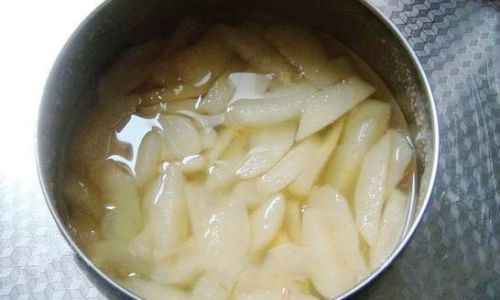
- Herbs and Spices: A slice of ginger, a cinnamon stick, or a few dried chrysanthemum petals can add warmth and complexity.
- Medicinal Ingredients: Traditional Chinese medicine often includes goji berries, licorice root, or honeysuckle flowers for added health benefits.
- Texture Contrast: For a modern twist, stir in a handful of cooked sago pearls or tapioca before serving.
Adjust cooking time slightly when adding extra ingredients. Herbs like ginger may require only 5-10 minutes at the end to infuse their flavor, while dried herbs need 15-20 minutes to rehydrate.
Troubleshooting Common Issues
- Mushy Pears: Reduce cooking time by 5-10 minutes next batch. Consider using firmer pear varieties.
- Watery Broth: Simmer uncovered for an additional 10-15 minutes to reduce the liquid.
- Overly Sweet Soup: Dilute with water or add a squeeze of lemon juice to balance the flavors.
- Lack of Depth: Roast the pears briefly before boiling to caramelize their natural sugars.
The Health Perspective: Why Time (and Temperature) Matter
From a wellness standpoint, boiling time affects the soup’s therapeutic properties. Studies suggest that prolonged simmering (up to 45 minutes) enhances the extraction of polyphenols and flavonoids from pears, compounds linked to anti-inflammatory and antioxidant effects. However, excessive heat beyond 60 minutes may degrade heat-sensitive vitamins like vitamin C.
For medicinal purposes, some herbalists recommend a double-boiling method: simmer the soup in a ceramic pot placed over boiling water for 5-2 hours. This gentle technique preserves delicate nutrients while intensifying flavors.
Serving and Storage: Making the Most of Your Batch
Rock sugar pear soup is best enjoyed warm, though it can also be chilled for a refreshing summer treat. Store leftovers in an airtight container in the refrigerator for up to 3 days. Reheat gently to avoid overcooking.
For longer storage, freeze the soup in ice cube trays. Pop a cube into hot water for an instant cup of comfort.
Cultural Context: A Drink steeped in Tradition
In Chinese culture, rock sugar pear soup is more than a beverage—it’s a symbol of care and nourishment. Served to convalescents, singers, and teachers, it’s believed to moisten the lungs and soothe the throat. During autumn, when the air turns dry, families often prepare large batches to ward off seasonal ailments.
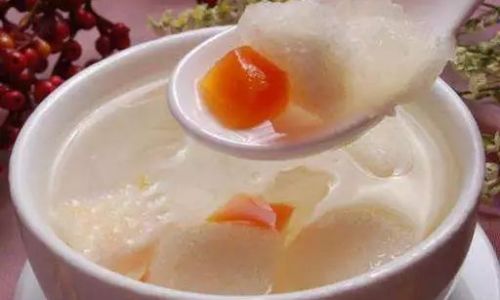
The act of boiling the soup itself is meditative, a ritual that connects generations. Grandmothers pass down pear-peeling techniques, and children learn to gauge doneness by the soup’s aroma.
Conclusion: The Art of Patience
Mastering rock sugar pear soup is a lesson in balance—between time and texture, sweetness and subtlety. While 30-45 minutes is the golden standard, remember that cooking is an intuitive art. Taste, adjust, and trust your senses. Whether you’re nursing a cold or simply craving a taste of tradition, this humble soup rewards patience with a warmth that lingers long after the last sip.
So the next time you ask, “How long should I boil rock sugar pear soup?” remember: the answer lies not just in minutes, but in the alchemy of fire, water, and time-honored care.
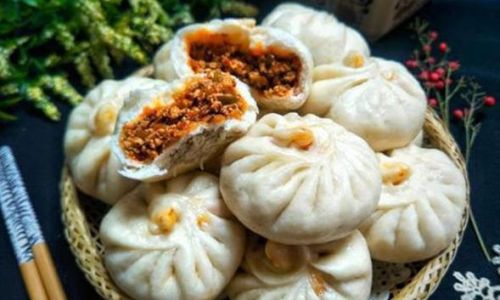
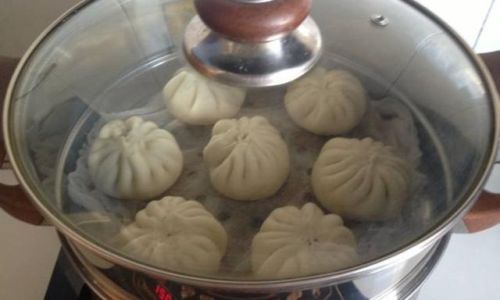
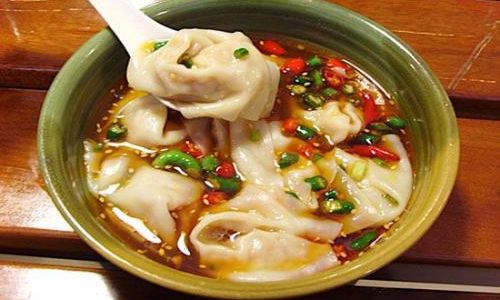
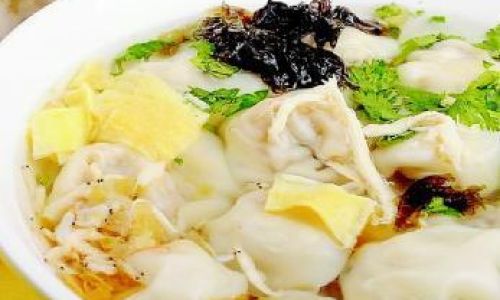
0 comments